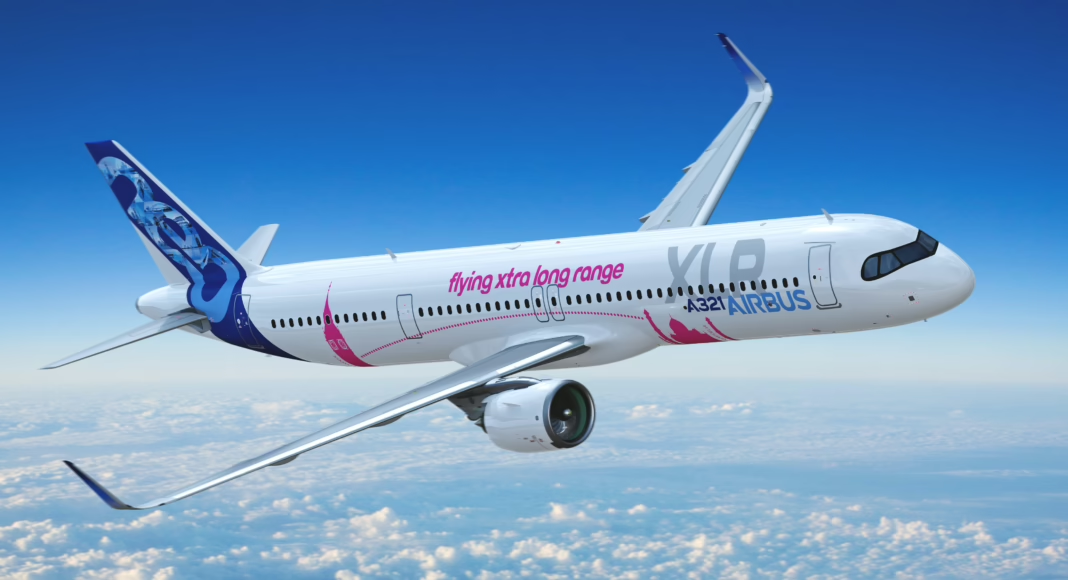Montreal-based carrier’s fleet modernization plans hit by ongoing manufacturing delays at Boeing and Airbus
Air Canada will not receive its first Airbus A321XLR and Boeing 787-10 aircraft until 2026, pushing back the airline’s fleet expansion plans by several months as both major aircraft manufacturers continue to struggle with production and supply chain issues.
The delays affect two critical aircraft types central to Air Canada’s long-range growth strategy: 30 A321XLRs and 18 Boeing 787-10s. Chief Financial Officer John Di Bert disclosed during the company’s May 9 quarterly earnings call that the extra-long-range variant of the A321neo “will be delayed by a few months, with the first aircraft now due to be delivered in 2026.”
The Montreal-based carrier had previously planned to begin receiving A321XLR deliveries in the fourth quarter of this year. Di Bert confirmed both aircraft types have been pushed to the first quarter of 2026.
“We are proactively managing and working with our partners to mitigate impacts of the OEM delivery delays in 2026 through 2028,” Di Bert said during the earnings call. The airline did not specify reasons for the delays, though both Airbus and Boeing have been seeking greater production and supply-chain stability for many months. Both airframers have missed delivery targets, in some cases by years.
Strategic Impact
The postponements represent a significant setback for Air Canada’s expansion plans. Chief Executive Michael Rousseau emphasized that both the A321XLR and 787-10 are “important to our New Frontiers plan, our long-range plan.”
“We’re ready to take them in and leverage them as we go forward,” Rousseau added.
The airline holds orders for 30 A321XLRs with options for 10 more between 2030 and 2032, while its 787-10 order stands at 18 aircraft with 12 additional options. The A321XLRs will be powered by Pratt & Whitney PW1100G geared turbofan engines.
Fleet Management Challenges
Air Canada’s fleet management challenges extend beyond delayed deliveries. The carrier currently has five Airbus A220-300s grounded for more than 30 days due to Pratt & Whitney’s recall of PW1500G geared turbofan engines. However, Chief Commercial Officer Mark Galardo indicated the situation may be improving, stating the company has reached the “peak” of grounded A220s.
“We look forward to a progressive return to service of our Airbus A220 fleet,” Galardo said.
Despite these setbacks, Air Canada expects to take delivery of eight A220s and three Boeing 737 Max 8s during the remainder of 2025, bringing its fleet totals to 42 A220s and 48 737 Max aircraft by year-end.
Financial Performance
The delivery delays come as Air Canada reported a first-quarter loss of C$102 million ($73 million), compared to a C$81 million loss during the same period last year. The airline attributed the wider loss to weakened demand in U.S. and transatlantic markets.
Di Bert acknowledged Air Canada has been preparing for these aircraft deliveries “for a couple of years in anticipation” and emphasized the airline is “ready to deploy them” once they arrive. The carrier declined to comment specifically on the delays when contacted by industry media.
Industry Context
The delays at Air Canada reflect broader challenges across the aviation industry. Both Boeing and Airbus have struggled to stabilize production rates and both airframers have been seeking greater production and supply-chain stability for many months. Aviation analytics firm Cirium notes that Air Canada’s order book includes significant commitments to both manufacturers.
When Air Canada placed its A321XLR order in March 2022, the airline had expected first deliveries in early 2024, based on Airbus’s initial expectation of clearing type certification in 2023.
Notably, Air Canada indicated it does not expect U.S.-imposed tariffs on Canada and Europe to affect aircraft deliveries in the short term.

Key Takeaways
- Air Canada’s first A321XLR and 787-10 deliveries delayed until Q1 2026.
- Delays affect 30 A321XLRs and 18 787-10s crucial to expansion plans.
- Five A220s remain grounded due to engine issues, but returns expected.
- Airline reported $73 million Q1 loss amid transatlantic market weakness.
- Manufacturing delays reflect ongoing industry-wide production challenges.



